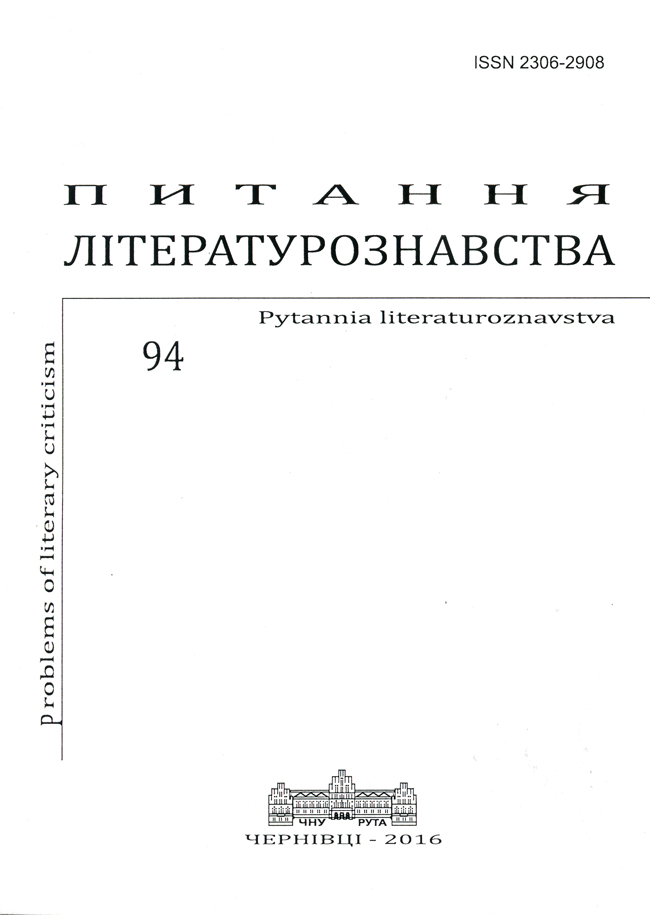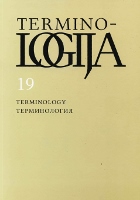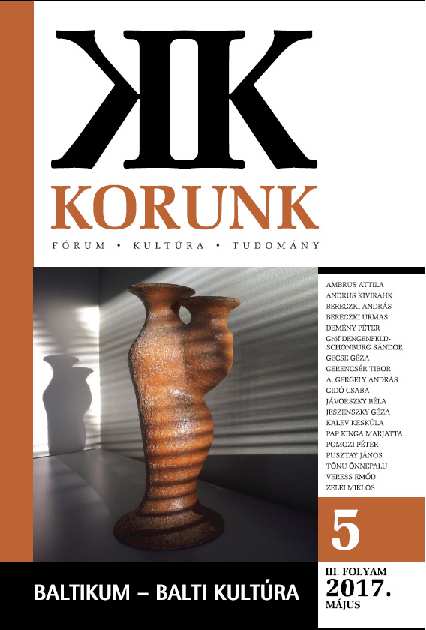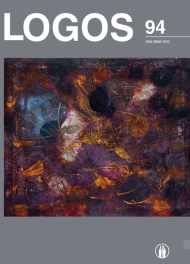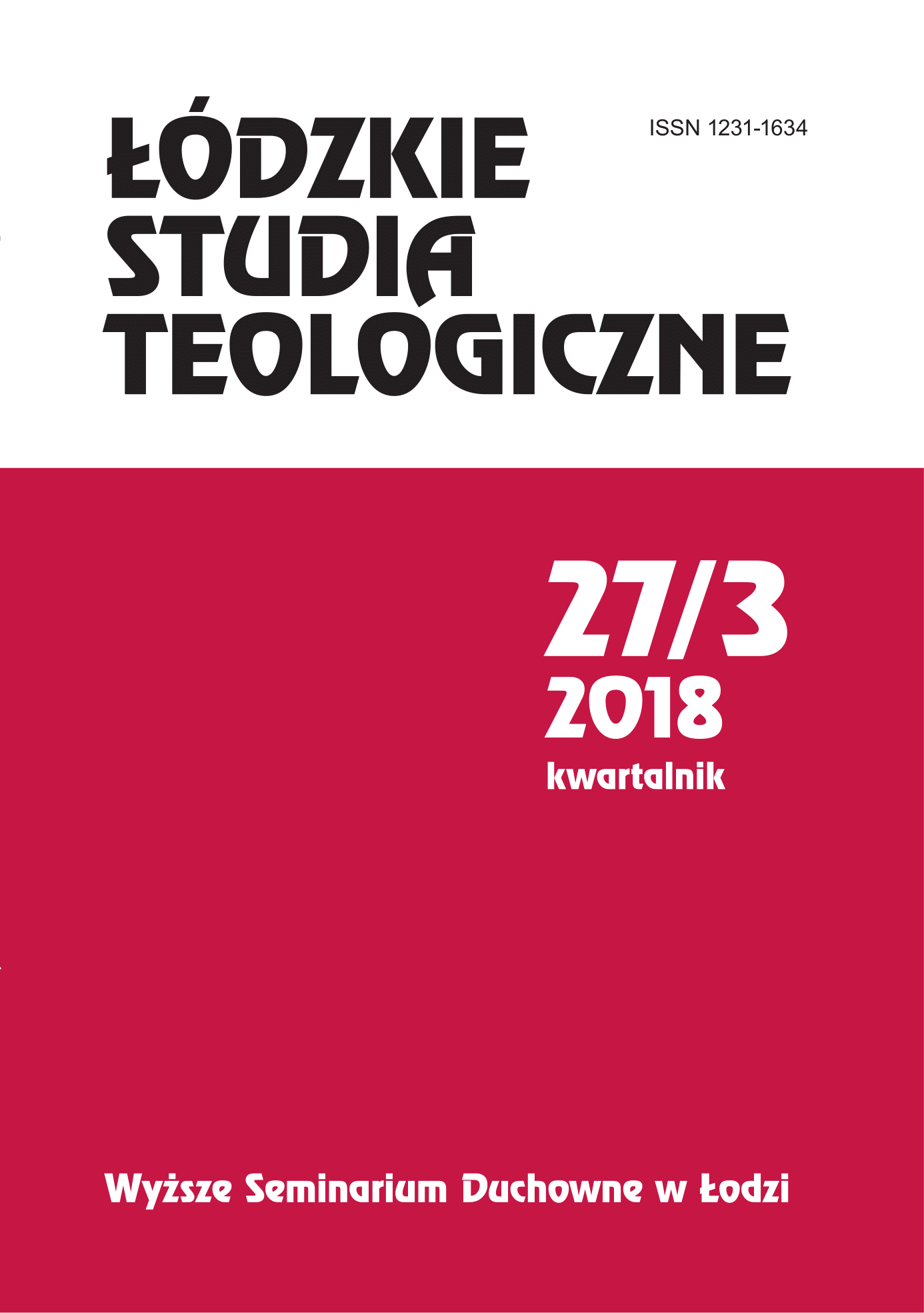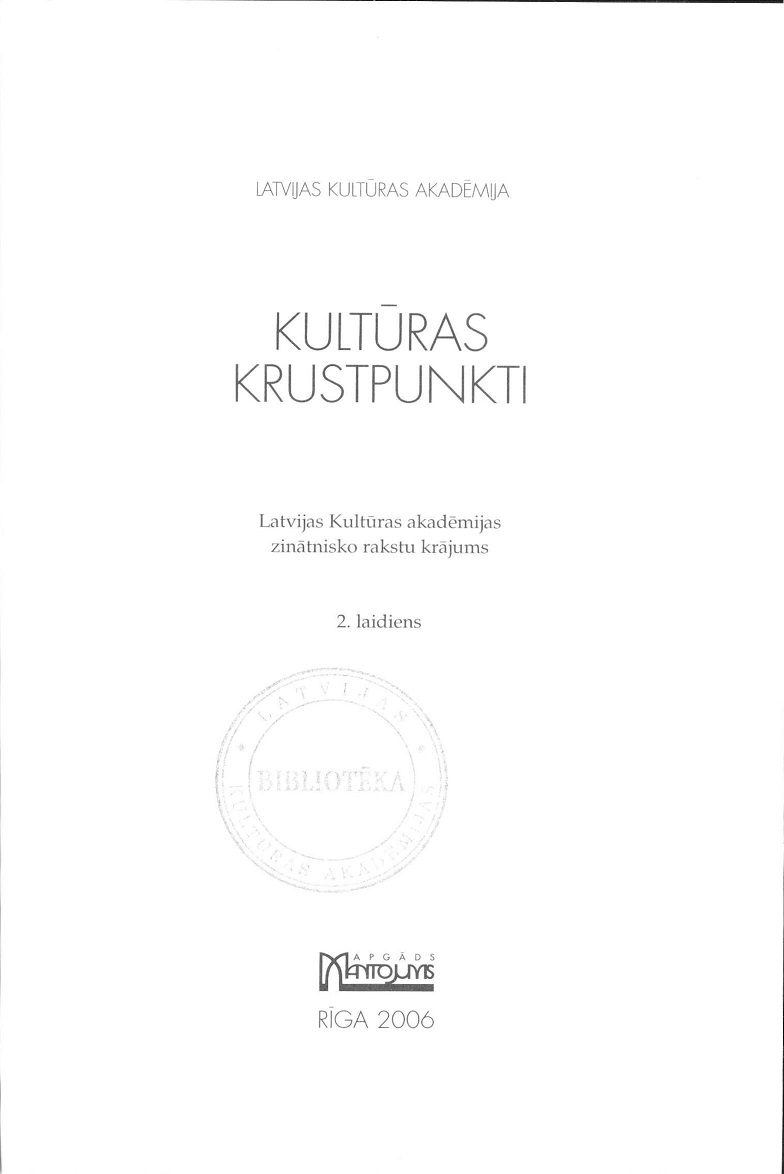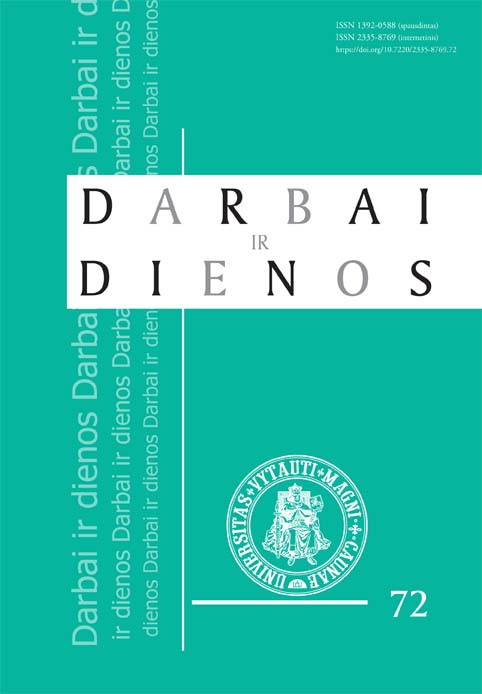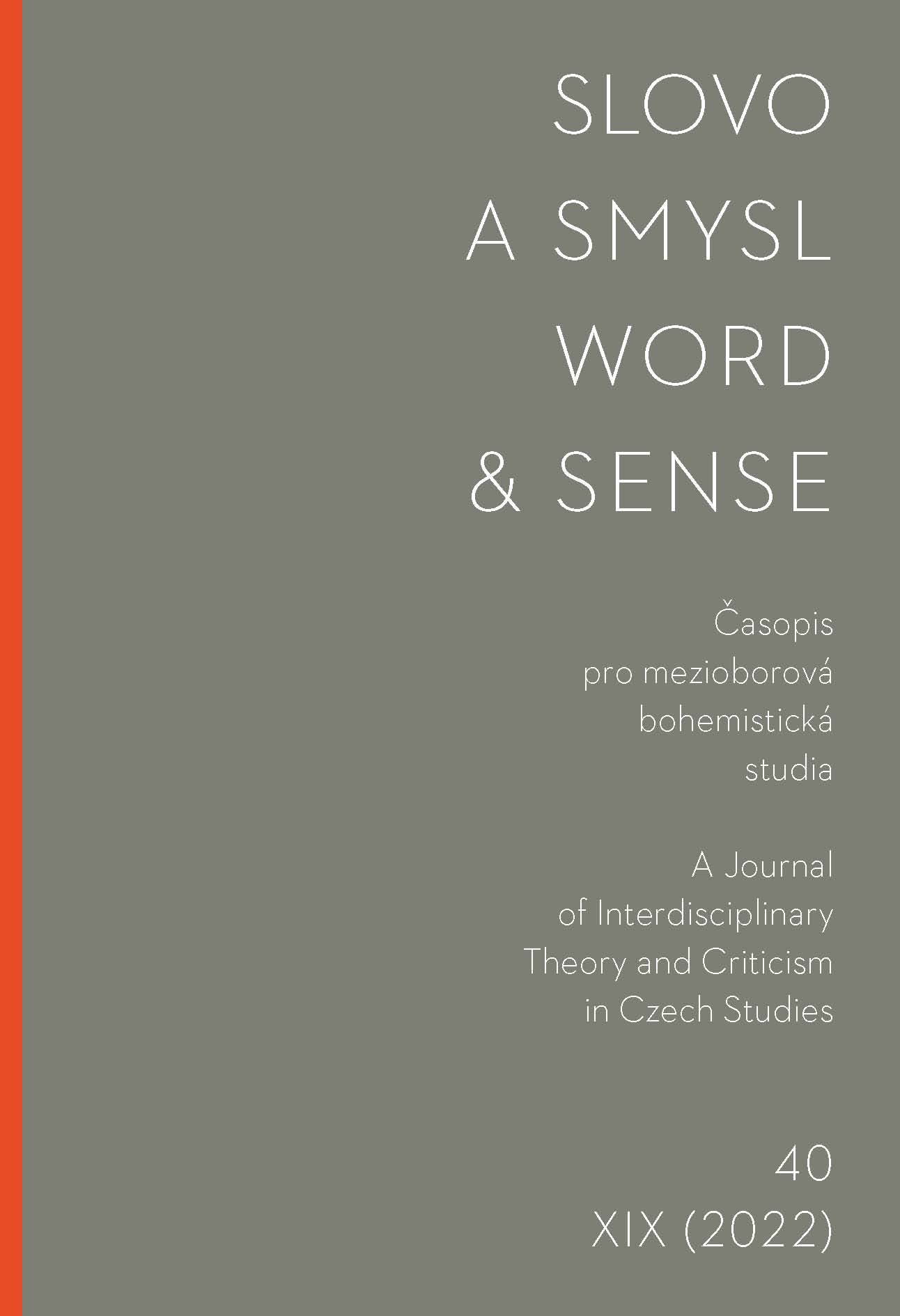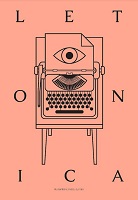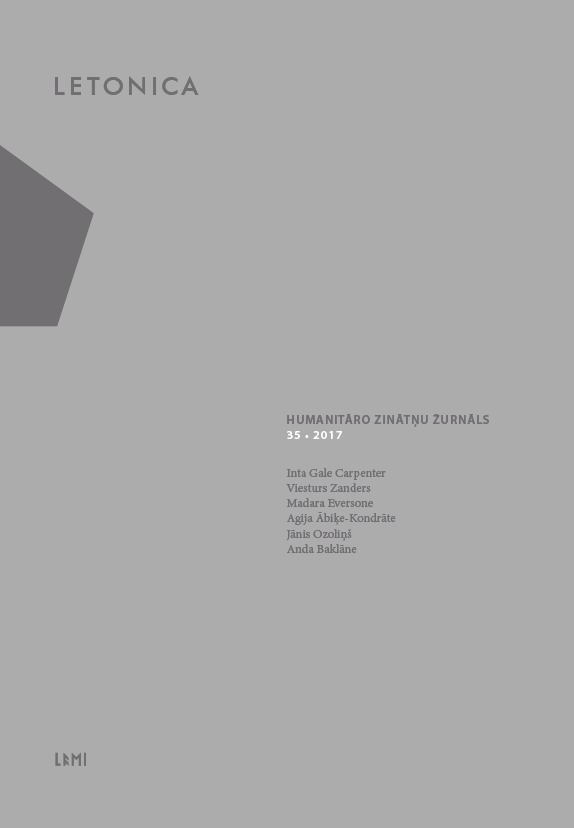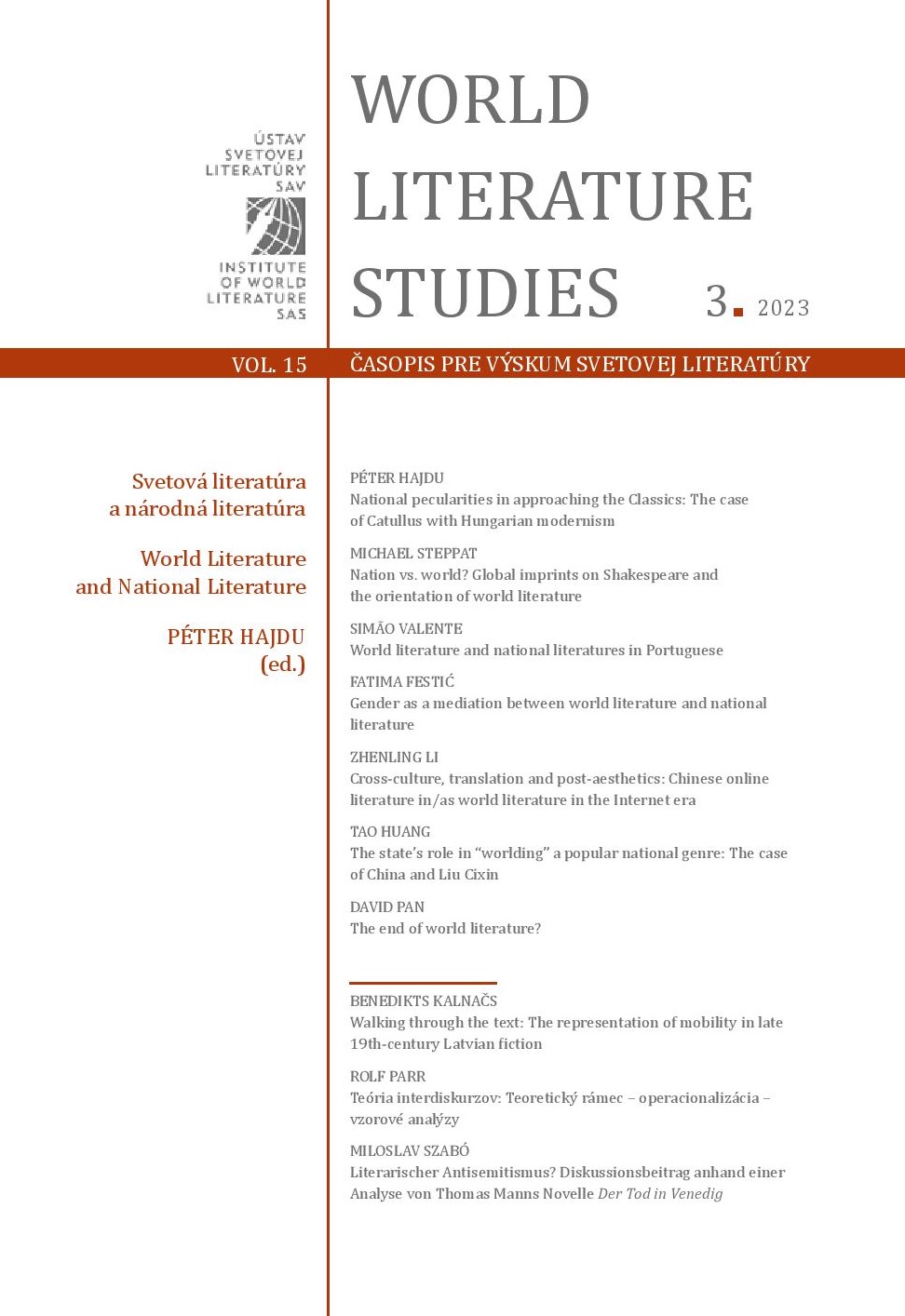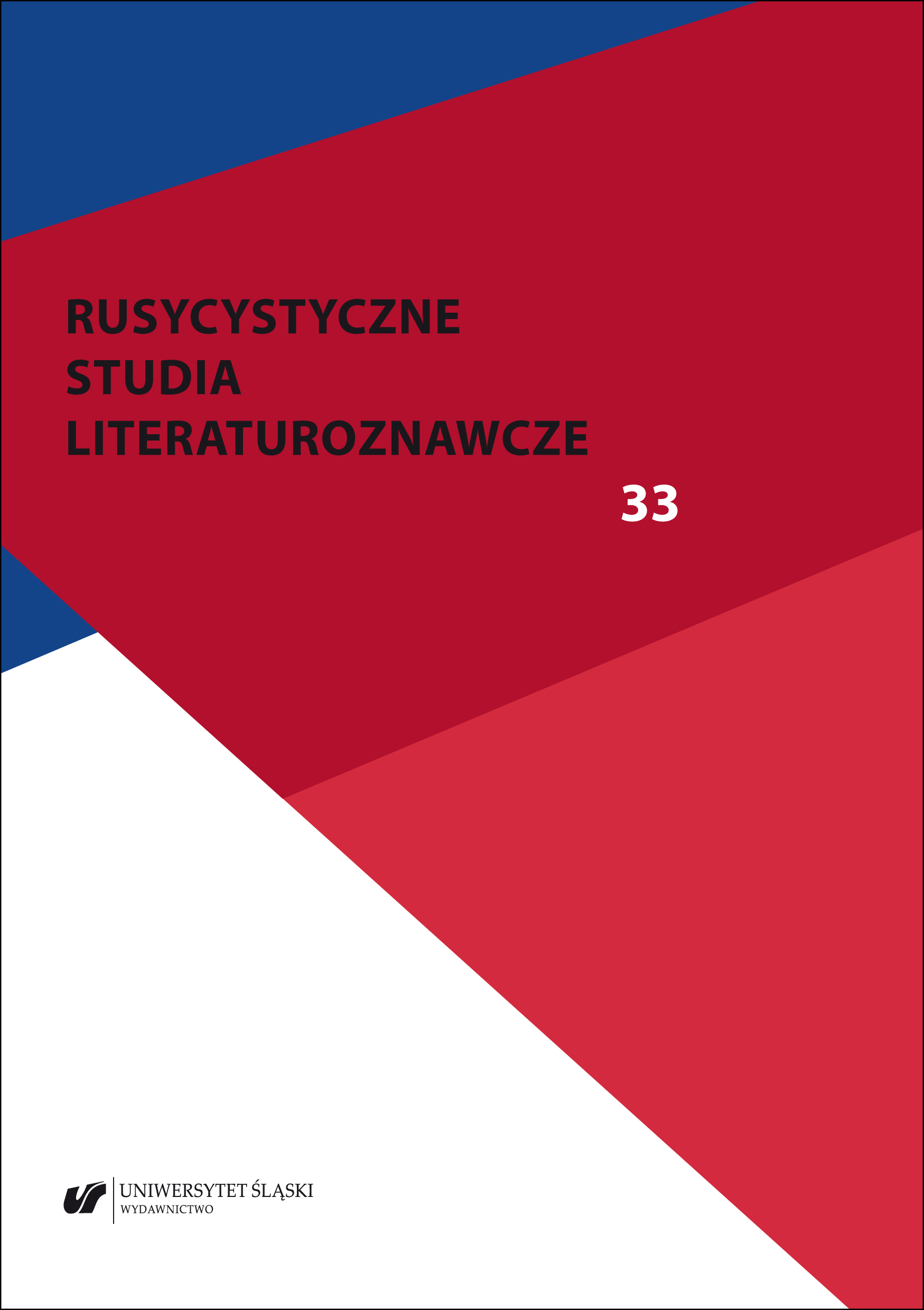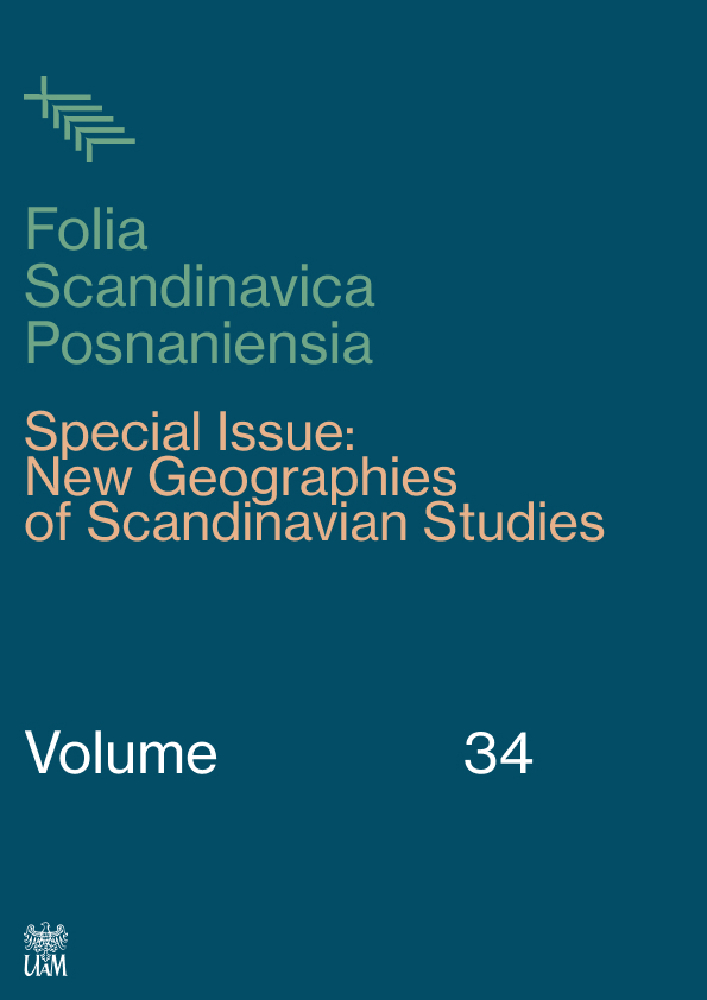Väike teejuht läti proosa territooriumil
The article gives a brief overview of the developments in 21st-century Latvian prose and takes a closer look at nine authors. In comparison with the roaring nineties the Latvian prose has stabilized over the recent decade. Every author has found their own poetic voice and those different poetics coexist in peace, without revealing any too clear divisions. In this bland context, Aivars Kļavis comes up with a surprise, as his extensive historical tetralogy Viņpus vārtiem („On the Other Side of the Gates”) demonstrates quite a liberal attitude to the traditional conception of Latvian history. The three parts of Gundega Repše’s Smagais metāls („Heavy Metal”) provide a mythologized view of the life of three women and their fight against time. Inga Ābele Paisums („High Tide”) is a gloomy novel in the spirit of classical modernism, also based on mythology, this time the Greek one. The dreamlike reality of Nora Ikstena combines lacy metaphors with colourful characters and loci. Inga Žolude’s debut novel Silta zeme („Warm Earth”) takes the reader to an unrealistic scenery inhabited by some infantile and asocial creatures for whom the end of the tunnel means nothing but darkness. Jānis Einfelds is a professional provoker and transgressor, whose oeuvre offers some extremely poetic visions as well as post-apocalyptic worlds. The short stories by Gundars Ignats, however, cultivate absolute simplicity as style. Emigre literature stands a little apart: the novel Stroika ar skatu uz Londonu („Construction Site with a View of London”) by Vilis Lācītis, for example, describes the life of a Latvian musician in England, while Jāņis Joņevs investigates the peculiarities of various sub- and countercultures and peripheries.
More...
